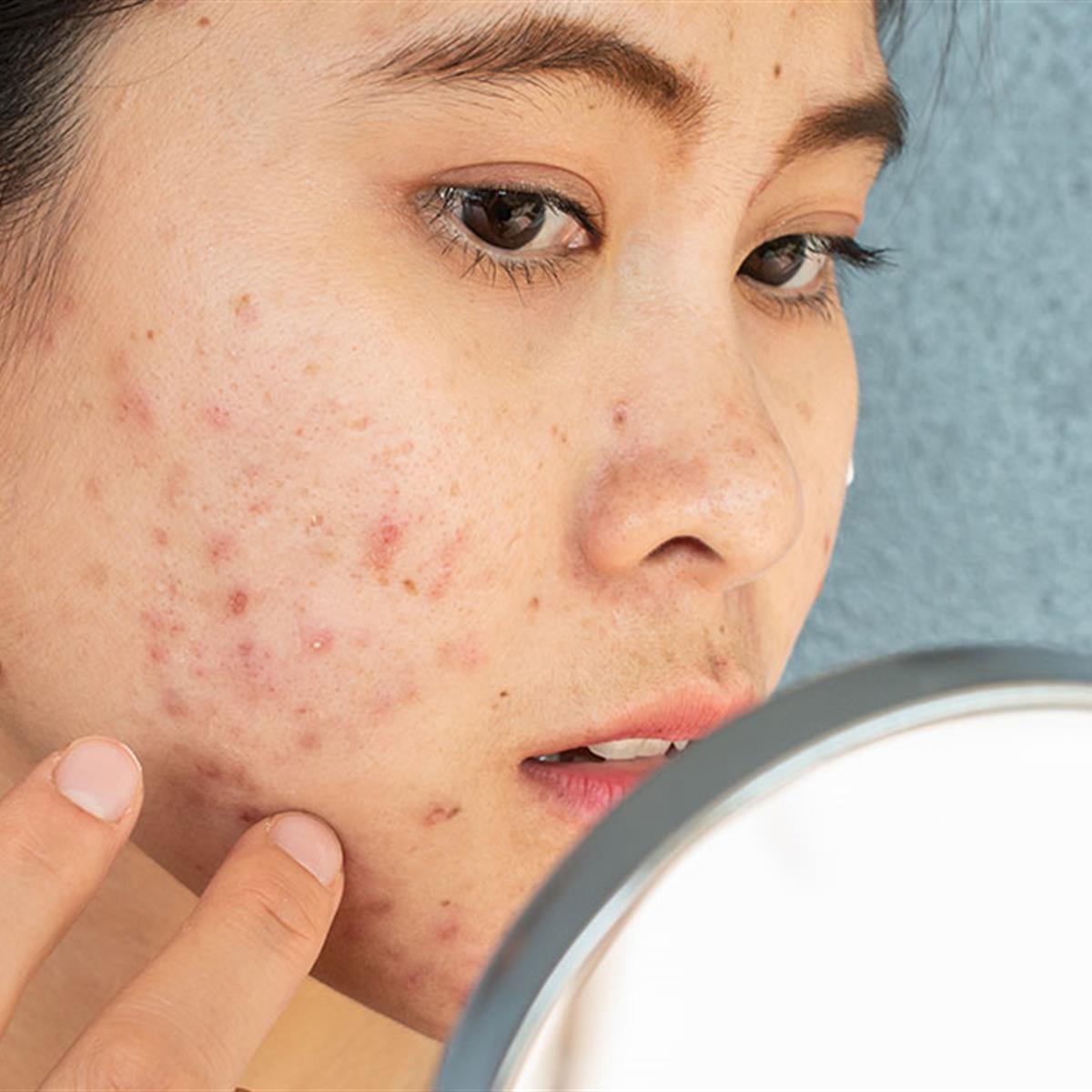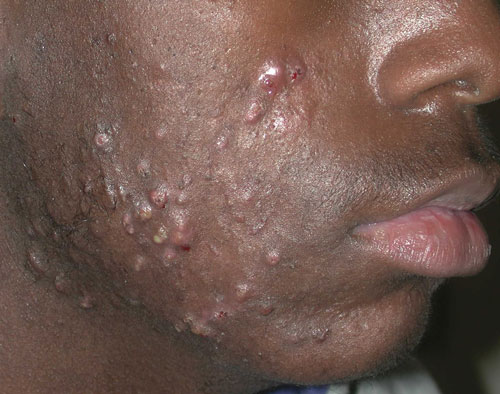
Acne is a common skin condition that affects teenagers worldwide. Approximately 85% of teens experience acne at some point during their teenage years. While acne is a normal part of growing up, it can be bothersome for some individuals and may even lead to low self-esteem. Additionally, severe acne can cause permanent scarring if left untreated. The good news is that there are various options available to prevent and treat acne. In this article, we will explore the causes of acne in teens, different types of acne bumps, how to prevent acne, and effective treatments.
What causes acne in teens?
During puberty, hormonal changes occur in the body, which can lead to increased production of oil by sebaceous glands in the skin. This excess oil, known as sebum, can cause the pores to become clogged, leading to acne. Moreover, a bacteria called C. acnes, which naturally resides on the skin, feeds on the excess oil and causes redness and irritation.
Different types of acne bumps
There are four main types of acne bumps:
- Blackheads: These are open comedones that appear as clogged pores with a darker top than the surrounding skin.
- Whiteheads: Also known as closed comedones, these are clogged pores that bulge slightly from the skin’s surface.
- Pimples: Red bumps that form when oil and bacteria clog pores more deeply. In some cases, pus may develop, turning the bump into a pustule.
- Nodules and cysts: Larger, painful pimples that extend to deeper layers of the skin and are more likely to cause scarring.

How long do pimples last?
Without treatment, a pimple typically takes about two months to go through its entire cycle, from the initial clog to a fully developed pimple, and eventually disappearing. After pimples resolve, they often leave red or brown marks that may take longer to fade. Some pimples may also leave permanent indentations or scars, which require professional treatment.
What can make acne worse?
Several factors can worsen acne:
- Hormones: Teenage hormones, as well as hormonal fluctuations before menstrual periods, can increase oil production and trigger acne.
- Diet: The role of diet in acne is not entirely clear. However, consuming a healthy, well-balanced diet is beneficial for overall skin health. Diets high in sugars and simple carbohydrates may contribute to acne.
- Skin care products and cosmetics: Certain skincare products, particularly oil-based ones, can clog pores and worsen acne. It’s best to opt for water-based or non-comedogenic products. Additionally, anything that applies prolonged pressure on the skin, like tight clothing or chinstraps on helmets, can aggravate acne.
- Stress: While stress itself does not cause acne, it is associated with worsened acne symptoms. Managing stress through regular exercise, sufficient sleep, and supportive relationships can help improve acne.
Key tips to help prevent acne
Adopting good skincare practices can help prevent acne:
- Wash the skin twice a day with a gentle cleanser or soap and warm water. Avoid using harsh or gritty scrubs.
- Do not scrub the skin vigorously, as this can irritate it and make acne worse. Acne is not caused by dirt on the surface but rather by excess oil and bacteria inside the pores.
- Refrain from pinching, popping, or picking at pimples, as it can worsen acne and lead to infections or scarring.
How to treat acne
The treatment of acne focuses on addressing the causes and symptoms of acne. Here are some common acne treatments:
- Benzoyl peroxide: This over-the-counter product helps kill the acne-causing bacteria (C. acnes) and reduce oil production. Use a lower strength benzoyl peroxide wash (around 3.5%-5%) once a day to avoid bleaching fabrics.
- Hydrocolloid pimple patches: These small stickers cover and protect individual pimples while absorbing oil and bacteria. They can be effective for improving single pimples.
- Antibiotics: Doctors may prescribe antibiotics in the form of creams, lotions, solutions, gels, or pills to kill acne-causing bacteria and reduce inflammation.
- Topical retinoids: These medications, such as adapalene, tretinoin, and tazarotene, help unclog pores by removing the outer layer of skin and improving acne. Start using them every other day to minimize dryness and gradually increase usage.
- Hormonal treatments: Certain contraceptive pills and spironolactone can be prescribed to females with acne. These medications help reduce oil production and acne by blocking hormonal effects on the skin.
- Isotretinoin: Reserved for severe acne cases, isotretinoin is a powerful oral medication that decreases sebaceous gland oil production. It requires close monitoring due to potential side effects and the risk of birth defects if taken during pregnancy.
What to keep in mind about acne treatment
- It takes at least two months for acne to improve after starting treatment, so patience is essential.
- Start using acne-fighting products one by one and gradually to avoid skin irritation.
- For severe acne or scarring, consult a doctor or dermatologist for more effective treatment options.
- Most acne treatments do not provide a cure, so consistent use is necessary to prevent acne from returning.
- Many acne treatments may cause dryness and mild skin peeling. Regularly applying an oil-free moisturizer can help combat these side effects.
- Sun protection is crucial to fade red and brown marks and protect the skin from sensitivity associated with certain acne treatments. Consider using a moisturizer with sunscreen for added convenience.
Talk with your doctor
If you have concerns about acne or any other health-related issues, don’t hesitate to consult with your pediatrician or pediatric dermatologist. They can provide guidance and recommend suitable treatments.
FAQs
Q: Can diet affect acne?
A: While the direct impact of diet on acne is not fully understood, maintaining a healthy, balanced diet is beneficial for overall skin health. Diets high in sugars and simple carbohydrates might contribute more to acne.
Q: How long does it take for a pimple to go away?
A: Without treatment, a pimple typically lasts about two months from formation to resolution. However, individual factors and the severity of acne may influence the duration.
Q: Do all pimples leave scars?
A: Not all pimples leave scars. However, severe acne or excessive manipulation of pimples can increase the likelihood of scarring. It’s important to seek appropriate treatment to prevent scarring.
Conclusion
Acne is a common skin condition that affects many teenagers. Understanding the causes and types of acne can help individuals take better care of their skin and prevent or treat acne effectively. By adopting good skincare practices and considering suitable treatment options, teenagers can manage acne and improve their self-confidence. Remember to consult a healthcare professional for personalized advice and guidance on acne treatment.
